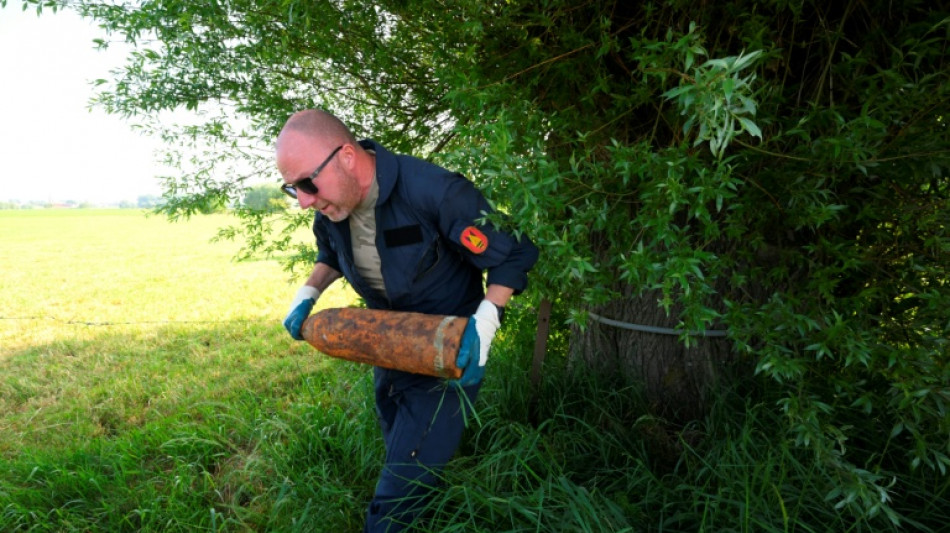
-
 Iranians across North America rally for -- and against -- strikes
Iranians across North America rally for -- and against -- strikes
-
Shakespeare would have shunned streaming, 'Hamnet' team says

-
 Will Oscars be 17th time lucky for songwriter Diane Warren?
Will Oscars be 17th time lucky for songwriter Diane Warren?
-
Sympathy for the bedeviled: the likable conspiracy theorist of 'Bugonia'

-
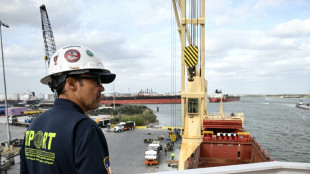 Texas port humming as Trump ramps up Venezuela oil
Texas port humming as Trump ramps up Venezuela oil
-
76ers' center Embiid to miss at least three games with oblique strain

-
 US, Israel defend strikes at UN as Iran alleges 'war crime'
US, Israel defend strikes at UN as Iran alleges 'war crime'
-
Brumbies' 'mental resolve' keeps them unbeaten in Super Rugby

-
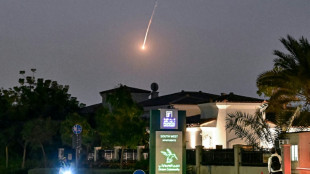 Iran attacks rock Dubai's Palm, Burj Al Arab, airport
Iran attacks rock Dubai's Palm, Burj Al Arab, airport
-
Iran leader Khamenei killed in massive US and Israeli attack, Trump says

-
 UK pop-soul star Olivia Dean sweeps Brit Awards
UK pop-soul star Olivia Dean sweeps Brit Awards
-
Iranians across North America take to the streets for - and against - strikes

-
 'Turning point' as Crusaders notch first Super Rugby win
'Turning point' as Crusaders notch first Super Rugby win
-
White House releases photos of Trump, Vance during Iran ops

-
 PSG win to extend lead over Lens at top of Ligue 1
PSG win to extend lead over Lens at top of Ligue 1
-
Barca's Yamal nets hat-trick in Villarreal romp, Atletico go third

-
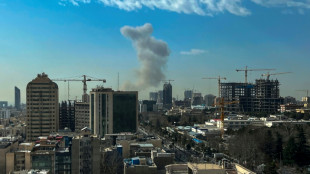 Trump says Khamenei is dead after Israel, US attack Iran
Trump says Khamenei is dead after Israel, US attack Iran
-
Iran's Khamenei: ruthless revolutionary atop Islamic republic

-
 Inter continue Scudetto march after Champions League humbling
Inter continue Scudetto march after Champions League humbling
-
Questions cloud Trump's case for war against Iran

-
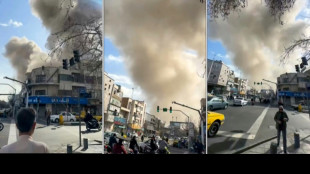 Latest developments in US, Israel strikes on Iran
Latest developments in US, Israel strikes on Iran
-
Fears of Mideast war as US-Iran conflict flares

-
 Guardiola expects short absence for injured Haaland
Guardiola expects short absence for injured Haaland
-
Liverpool's set play transformation a return to 'normal' for Slot

-
 Man City win to close on Arsenal as Liverpool hit five
Man City win to close on Arsenal as Liverpool hit five
-
Kane bags brace as Bayern end Dortmund's title hopes

-
 Semenyo sinks Leeds as Man City close gap on Arsenal
Semenyo sinks Leeds as Man City close gap on Arsenal
-
Last-gasp Lukaku saves Napoli's blushes at rock-bottom Verona

-
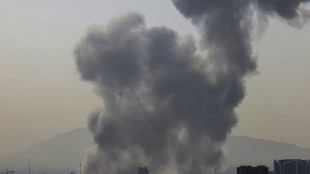 Could the US-Israel war on Iran drag on?
Could the US-Israel war on Iran drag on?
-
Iranians abroad jittery but jubilant at US, Israeli strikes

-
 Pakistan 'have underperformed' says Agha after T20 World Cup exit
Pakistan 'have underperformed' says Agha after T20 World Cup exit
-
Under-strength Toulouse overpower Montauban in Top 14

-
 Vietnam AI law takes effect, first in Southeast Asia
Vietnam AI law takes effect, first in Southeast Asia
-
Brazil's Lula visits flood zone as death toll from landslides hits 70
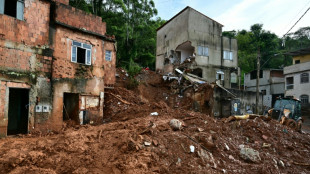
-
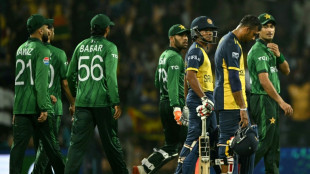 New Zealand into T20 World Cup semis as Sri Lanka avoid big Pakistan loss
New Zealand into T20 World Cup semis as Sri Lanka avoid big Pakistan loss
-
Medvedev wins Dubai title as Griekspoor withdraws

-
 First Yamal hat-trick helps Liga leaders Barcelona beat Villarreal
First Yamal hat-trick helps Liga leaders Barcelona beat Villarreal
-
Liverpool hit five past West Ham, Haaland-less City face Leeds test

-
 Van der Poel romps to cobbled classic win
Van der Poel romps to cobbled classic win
-
Republicans back Trump, Democrats attack 'illegal' Iran war

-
 Madonna is surprise attraction at Dolce & Gabbana Milan show
Madonna is surprise attraction at Dolce & Gabbana Milan show
-
Farhan keeps Pakistan hopes alive as they post 212-8 against Sri Lanka

-
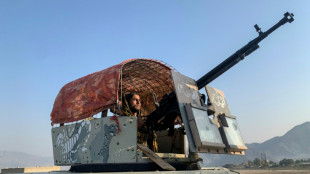 Afghanistan says civilians killed in Pakistan air strikes
Afghanistan says civilians killed in Pakistan air strikes
-
Tug of war: how US presidents battle Congress for military powers

-
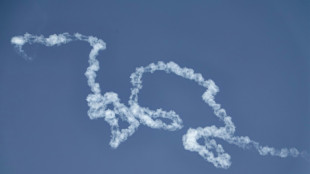 Residents flee as Iran missiles stun peaceful Gulf cities
Residents flee as Iran missiles stun peaceful Gulf cities
-
Streets empty and shops close as US strikes confirm Iranian fears

-
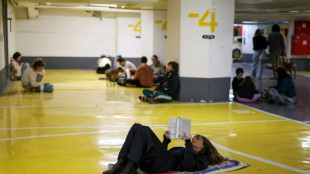 Israelis shelter underground as Iran fires missiles
Israelis shelter underground as Iran fires missiles
-
Bournemouth held by Sunderland in blow to European bid

-
 VAR expanded to include second bookings and corners for World Cup
VAR expanded to include second bookings and corners for World Cup
-
Iranians in Istanbul jittery but jubilant at US, Israeli strikes


Deminers comb Belgian countryside for remnants of Great War
Working with the utmost care, a Belgian deminer wiggled a century-old artillery shell from the soil and deposited it safely in a sandbox in the back of his truck.
"This one's an 18-pounder -- there might be a bit of explosive left inside," said Franjo, one of a team of army specialists whose job is to comb the countryside for remnants of the Great War.
In the flat fields of northwestern Belgium, where hundreds of thousands of soldiers fell between 1914 and 1918, traces of the conflict are everywhere.
Beyond the military cemeteries -- their neat rows of tombstones stretching sometimes beyond the line of sight -- British, German and French shells and munitions are constantly turning up at the surface.
The task of tracking and removing them keeps the demining service of the Belgian army -- known as SEDEE in French, DOVO in Flemish -- busy on a daily basis.
Founded in the wake of World War I, the service concentrates its activities around the town of Langemark-Poelkapelle, north of Ypres, where it has set up base.
Each year its teams respond to more than 2,000 requests from farmers or construction crews to remove munitions -- some spent, but others still live -- after turning the soil to sow crops or lay foundations for a new home.
Once removed, the team determines how dangerous the munitions are -- and based on that how to dispose of them, either detonating them outside, or burning them in an oven.
"We destroy 200 to 250 tonnes every year," Jacques Callebaut, head of public relations for the deminer service, told AFP.
On this morning near Ypres, it took the team under an hour to scoop up a dozen shells and grenades -- snaking along little country roads with their small truck.
Franjo -- who asked to be identified by first name only -- and his two teammates navigate with the help of a small pile of printed police emails, mapping all the spots where potential explosives have been flagged.
- 'An added danger' -
Sometimes landowners try to make their work easier by setting out the shells to be collected from the roadside.
The deminers themselves wear thick gloves to handle the rusted relics, which can potentially contain white phosphorus, arsenic or mustard gas -- a chemical weapon causing skin blistering also known as yperite because of its use near Ypres in World War I.
"Around 60 percent of the munitions we find contain an explosive load, and around 10 to 30 can also be toxic, which brings an added danger," Callebaut said.
When in doubt, they rely on technology -- peering inside the shell with X-rays to spot a smoke cartridge, or using a neuron spectrometer to analyse its various materials.
Belgium's deminers have built up a degree of expertise that other countries have come to rely on.
"We handle the toxic munitions found in The Netherlands, and a few weeks ago we were called to neutralise a bomb in Norway as they didn't have the equipment to do so," Callebaut said.
At the crossroads of the Germanic, French and British empires, Belgium has been a key battlefield since the European Middle Ages -- and famously saw Napoleon's French army defeated by the British at Waterloo, in 1815.
It was heavily hit by the two world wars of the 20th century -- but it was the first that left by far the most traces in the land.
"World War II shells only turn up from time in time, in cities that came under bombardment," said Corentin Rousman, a Belgian historian.
Near Ypres, by contrast, "there was a static front line for four years, with millions of shells on either side," he said.
S.Gregor--AMWN



